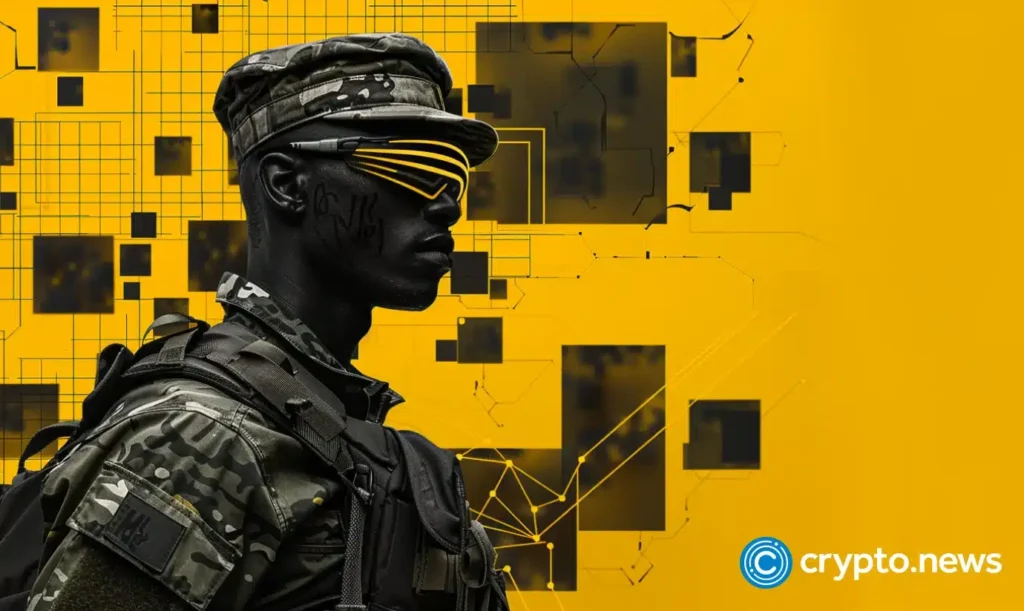Nigeria's fiat currency has experienced a significant depreciation against major foreign currencies, with the government blaming cryptocurrencies.
On February 21, Binance placed a price cap on the USDT P2P exchange rate as part of its compliance efforts, causing controversy within the Nigerian cryptocurrency community.
In response to widespread backlash, the exchange quickly reversed this decision and allowed trading to resume as normal.
While the intention behind this action was to defuse tensions, it may have unintentionally made the situation worse for Binance.
This comes as the government moves to block crypto platforms due to links to inflationary pressures in Nigeria, specifically targeting the Binance website and several other foreign exchange trading platforms.
Amid growing concerns, multiple Nigerian Binance users reported on February 22 that they were unable to access the exchange's application.
These complaints surfaced as the Nigerian government directed telecom service providers to block access to all crypto exchange platforms as part of efforts to stabilize the rapidly depreciating currency.
To allay user concerns, Binance sent a reassuring email stating that the platform had experienced an outage, but that app operations continued without impact.
The exchange emphasized the safety of users' funds and reiterated its commitment to maintaining dialogue with local regulators.
However, the situation escalated further as calls for a complete ban on Binance emerged in Nigeria. And recently, the Nigerian House of Representatives Financial Crimes Committee is considering questioning Binance CEO Richard Teng on charges of terrorist financing and money laundering.
Earlier, presidential aide Bayo Onanuga criticized the company's role in setting Nigeria's exchange rate, likening it to usurping the powers of the central bank.
He called on the Nigeria Economic and Financial Crimes Commission (EFCC) to take action against Binance and other exchanges such as KuCoin and Bybit to stop further manipulation of the naira.
Meanwhile, local crypto platforms in Nigeria also reported being affected by government restrictions. Nigeria's crypto community has vehemently opposed the government's move to ban crypto exchanges, denouncing it as yet another authoritarian response to the country's challenges.
However, the Nigerian government has stood by its decision to block P2P trading on Binance, signaling a broader crackdown on crypto trading activities in Nigeria.
The move has raised concerns among stakeholders about the potential negative impact on innovation, investment and financial inclusion in the country. Many fear that the government's overregulation will push crypto transactions underground, depriving Nigerians of access to digital assets and stifling technological advances in the financial sector.
It is worth noting that the Nigerian government previously banned cryptocurrencies in February 2021 and subsequently lifted the restrictions in December 2023.
Are cryptocurrencies a threat to the naira?
The Nigerian government's tough stance on cryptocurrencies is not new.
In February 2021, the Central Bank of Nigeria (CBN) issued a directive prohibiting banks and financial institutions from facilitating transactions involving virtual currencies. The CBN cited concerns over money laundering, terrorist financing and other illegal activities as the basis for the ban.
Despite the ban, Nigeria remains a hotspot for cryptocurrency trading and adoption, and most of these traders relied on VPNs. Disillusioned with traditional financial institutions and drawn to the potential of digital currencies, the country's tech-savvy young people are flocking to cryptocurrency platforms in droves.
However, recent developments suggest that governments are stepping up efforts to curb the use of cryptocurrencies. Reports have emerged that authorities are cracking down on crypto exchanges, arresting individuals involved in crypto-related activities and freezing bank accounts suspected of facilitating crypto transactions.
The government crackdown coincides with a period of turbulence in Nigeria's economy, characterized by persistent inflation, currency devaluation, and economic instability.
The value of the naira has been on the decline and is significantly underperforming the world's major currencies such as the US dollar and the euro.
corruption continues
Observers argue that government hostility toward cryptocurrencies stems from a fear of losing control of the financial system. Unlike traditional currencies, which are regulated by central banks or governments, cryptocurrencies operate on decentralized networks that are beyond the jurisdiction of a single authority.
This decentralized nature of cryptocurrencies poses challenges to governments' ability to monitor and regulate financial transactions and can undermine government power and control.
Furthermore, some analysts believe that the government's crackdown on cryptocurrencies is a natural reaction to the government's inability to address the fundamental economic challenges facing the country.
Rather than addressing structural issues such as corruption, inadequate infrastructure, and over-reliance on oil revenues, critics are scapegoating cryptocurrencies to conveniently distract from other failings. and blames the government.
As of this writing, the price of virtually every essential commodity in Nigeria, from cement to sachets of water, has soared, and civil servants are now struggling to afford basic necessities such as food and clothing. I am.
In recent weeks, Nigerians have taken to the streets with placards to organize peaceful protests in support of cryptocurrencies. For them, cryptocurrencies are a lifeline in an economy plagued by deep corruption, inflation, lack of accountability among government officials, and currency instability.
Despite the current government-driven gloom and uncertainty in Nigeria's web 3 sector, cryptocurrencies offer a means to preserve wealth, access global markets, and participate in financial transactions with greater privacy and autonomy. The adoption of cryptocurrencies will continue to increase among young people as they provide the following benefits:
The crackdown has some members of Nigeria's crypto community calling for increased advocacy and education to increase understanding of digital currencies among policymakers and the public.
They say regulation requires a more nuanced approach. By focusing on investor protection and market integrity, we can maximize the potential of cryptocurrencies while mitigating the risks associated with their use.


